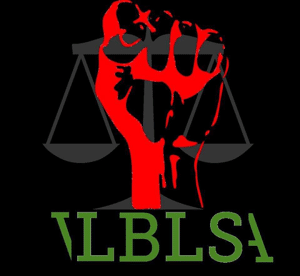
June 3, 2020
On September 27, 1966, Reverend Dr. Martin Luther King Jr said: “Certain conditions continue to exist in our society, which must be condemned as vigorously as we condemn riots. But in the final analysis, a riot is the language of the unheard. And what is it that America has failed to hear? It has failed to hear that the promise of freedom and justice have not been met.” More than fifty years later, America still refuses to hear Black Americans’ voices. The senseless murders of George Floyd, Breonna Taylor, and Ahmaud Arbery are no exception.
Over-policing in black communities has been a normalized practice for far too long. Black children grow up seeing police officers killing their fathers, mothers, brothers, and sisters simply because of the presumption that comes with the color of their skin. The same police officers who are supposed to protect and serve are compromising safety in our communities, and the system does not hold them accountable. But the oppression of Black people is not limited to police brutality.
In the midst of a worldwide pandemic, riots have broken out across the country to protest not only these unjustified murders but the oppressive system that fostered these events. Institutional racism burdens Black communities with long-lasting trauma. We constantly have to justify our existence. Society constantly invalidates our experiences. America refuses to see us as humans with inherent value. This has been Black Americans’ experience for generations. This intergenerational trauma will continue to promote racial divide if we do not remediate injustice in black communities.
Civil rights issues do not only affect Black communities. If we allow civil rights to be ignored and eroded, everyone suffers. Depriving a person of their civil rights sets a precedent for eliminating civil rights for all. As a nation, we have a lot of work to do if we hope to achieve equity for all people.
To our non-Black allies, you must fight racial injustice. It is not enough to be “not racist.” You must be “anti-racist”. It is not enough to be silent. You must speak up and hold those around you accountable. Use your skills, resources, and knowledge to advocate for the Black community so they are seen as people just as you are.
As future attorneys, we all have a duty to ensure the law is administered equitably. We call on you to be an ally to the Black community by combating injustices, police brutality, as well as inequalities in America’s justice system. This current oppressive system disproportionately incarcerates Black people and deprives them of resources. Vermont Law School has a growing restorative justice program, and we have an obligation to promote healing while doing all we can to right the wrongs of institutional racism embedded in American society.
We condemn the continued discrimination and mistreatment of black people in America. We condemn the enduring silence America has used to respond to issues affecting Black communities. We condemn America’s failure to hear that freedom and justice still elude millions of marginalized citizens.
In addition, members of the BLSA executive board recommend the following resources for education and action:
- Black Lives Matter: A Working Resource for Mobilizing
- TED Talk with Bryan Stevenson: We need to talk about an injustice
- Common Racist Attitudes and Behaviors
That indicate a detour or wrong turn into white guilt, denial or defensiveness
Vermont Law Black Law Students Association
Elijah Freeman
President
Robert Baker
Vice President
Diarra Raymond
Treasurer
Caresse Duru
Secretary
Chianna Hart
Parliamentarian